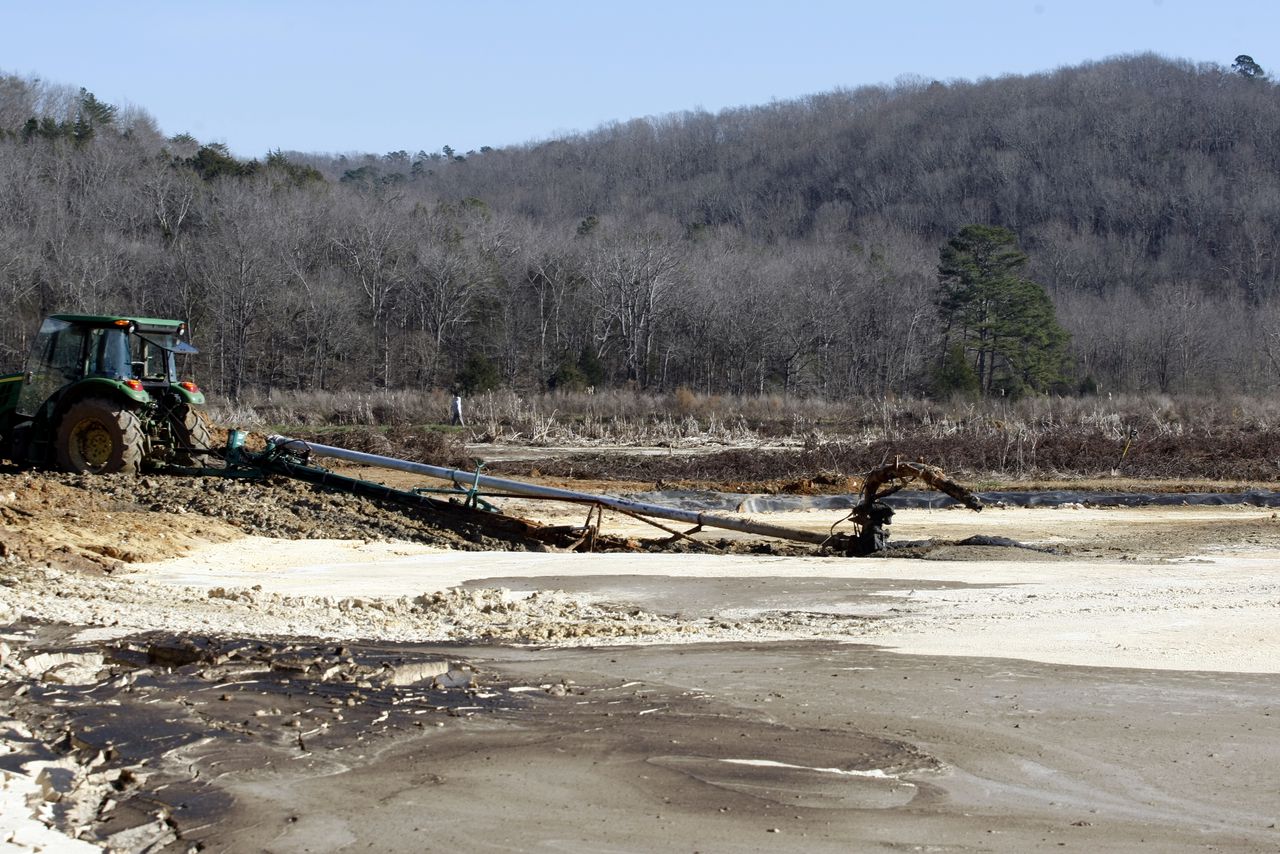Sludge farm to pay $76,800 for alleged waste violations in Alabama
An out-of-state waste company has agreed to pay $76,800 to resolve alleged violations of Alabama’s rules for using food processing waste as fertilizer.
The company, Arkansas-based Denali Water Solutions, operated a “sludge farm” in Morgan County, where poultry processing waste was stored in large lagoons at an old dairy farm before being mixed and spread on fields across Alabama.
The Alabama Department of Environmental Management posted details of the agreement with Denali on its website Wednesday.
In addition to paying the fine, Denali will be required to clean out the three waste lagoons at the Hidden Valley site in Morgan County, and to submit plans to ADEM to remediate the site.
The wastes being stored at the Morgan County site and spread on fields across the state are called biosolids, which typically are made up of the solid remnants left behind from a wastewater treatment plant at an industrial facility or a sewage treatment plant.
The consent order — a negotiated settlement between ADEM and Denali — will resolve alleged violations at the Morgan County farm and at five sites where the material was spread as fertilizer.
“We believe the terms of the consent order are appropriate, and we have already begun implementation of some of the items described in the consent order,” a Denali spokesperson told AL.com in an email on Friday.
ADEM issued a cease-and-desist order to Denali last April, citing overflows from the company’s storage lagoons, and evidence that the liner for the largest holding pond was torn. The inspector noted that the liner “appeared to have been compromised and was observed to be floating on the surface” of the pond.
ADEM also cited Denali for violations in spreading the waste in five locations: Phenix City, Hanceville, Glencoe, Holly Pond, and Clayton.
These violations included applying sludge within 500 feet of occupied dwellings, spraying within 100 feet of property boundaries and within 100 feet of surface waters (a river, creek or stream).
The new consent order will take the place of the 2022 cease-and-desist order.
In 2021, ADEM issued Denali a cease-and-desist order over its operations spraying biosolids at a closed coal mine in Jefferson County after complaints from neighbors. That cease and desist was eventually resolved when Denali agreed to pay a $34,500 fine and to inject the poultry processing waste into the soil rather that spraying it above the surface.
According to ADEM records, Denali has applied biosolids at numerous locations across Alabama, including in Barbour, Blount, Calhoun, Chambers, Clay, Colbert, Cullman, Dallas, DeKalb, Etowah, Franklin, Jackson, Lauderdale, Lawrence, Lee, Marshall, Mobile, Morgan, Russell, Sumter, Talladega, and Tuscaloosa counties.
Alabama first enacted rules about spreading biosolids as fertilizer in 2020, and tightened those restrictions last year after numerous complaints.
By agreeing to the consent order, Denali is not admitting to the alleged violations, but is agreeing to resolve them without further legal or enforcement action.
ADEM says it agreed to settle the violations “in an effort to resolve the alleged violations cited herein without the unwarranted expenditure of State resources in further prosecuting the alleged violations.”
“The Department has determined that the terms contemplated in the Special Order by Consent are in the best interests of the citizens of Alabama,” the order states.
